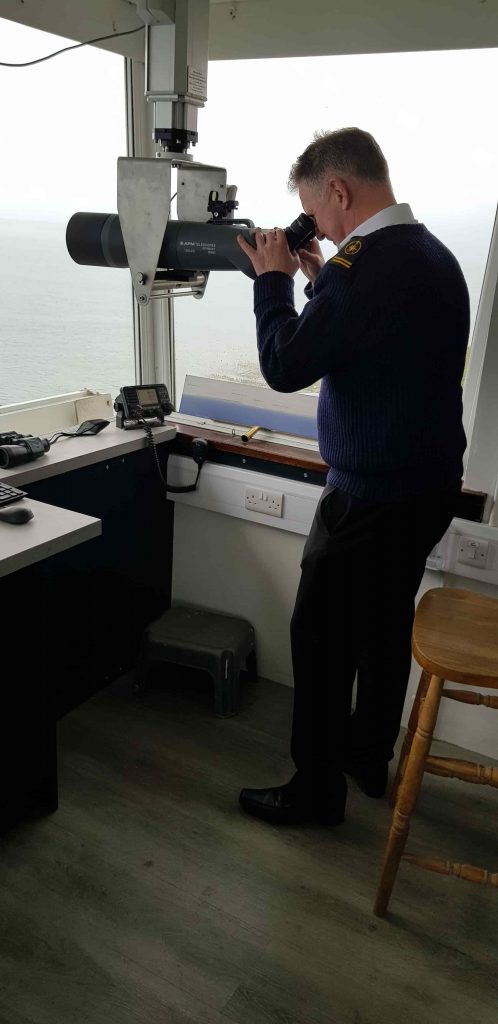igus bearings protect our shores
03/02/2021
UK Coastline is kept safe with the help of igus
Volunteers at the St Albans Head Coastwatch Station are keeping people safe – thanks to a special pair of binoculars and a gift from igus.
The station, based along Dorset’s Jurassic Coast, received some much-needed help from plastics experts igus.

Matthew Aldridge, UK Managing Director of igus, a global manufacturer of energy chain systems and polymer plain bearings, explained: “The St Albans Head Station recently approached us, seeking help to upgrade their equipment. Their old binoculars had deteriorated, and they had raised funds for a new set of high-powered binoculars and needed our help to mount them.
“After discussing the application details and establishing the best iglidur bearings for the mounting system, we were delighted to donate the parts to St Albans Head Station, helping to keep the coastline of the UK safe. “
The St Albans Head binocular mounting system was fixed indoors and so not susceptible to the elements. It needed the best materials possible as the binoculars weigh over nine kilograms, are 650mm long and expensive.
Matthew added: “It was essential that the mounting system was designed with high precision, had a small amount of friction, and operated smoothly and with minimal noise. These characteristics are the key reasons that igus polymer bearings were chosen as opposed to traditional metal bearings, which would likely corrode over time and need regular lubrication. “
NCI helper Martin Seedall CEng FIMechE, who made the initial contact with igus, added: “I have incorporated igus bearings within numerous product designs in the past because they are perfect when you need a quiet, lubrication-free product. Thank you to the whole igus team for their support.”
iglidur bearings are based on thermoplastic polymers that ensure good basic resistance to wear. Fibres and filling materials increase the bearing’s mechanical load-carrying capacity. Most importantly, they do not require any external lubrication as solid lubricants are embedded in the plastic. These are in the form of millions of microscopic particles in tiny chambers in the material.
From these chambers, the plain bearings release tiny amounts of solid lubricants during movement to sufficiently lubricate the immediate surrounding area.
In the early 1990’s, due to advancements in technology, HM Coastguard, responsible for protecting the UK’s coastlines, consolidated into fewer locations and closed down many coastal lookouts. It was because of a subsequent fatal accident off the coast of Cornwall that the National Coastwatch Institution, was founded by a group of volunteers.
Now, in 2021, the remaining watch stations around the British Isles are operated and manned by NCI, more than 2,500 volunteers – people valued as the ‘eyes along the coast’, who help coastguards by spotting distress flares, overturned vessels, and boats in trouble.
The terms “igus”, “Apiro”, “chainflex”, “CFRIP”, “conprotect”, “CTD”, “drylin”, “dry-tech”, “dryspin”, “easy chain”, “e-chain”, “e-chain systems”, “e-ketten”, “e-kettensysteme”, “e-skin”, “e-spool”, “flizz”, “ibow”, “igear”, “iglidur”, “igubal”, “kineKIT”, “manus”, “motion plastics”, “pikchain”, “plastics for longer life”, “readychain”, “readycable”, “ReBeL”, “speedigus”, “triflex”, “robolink”, “xirodur”, and “xiros” are protected by trademark laws in the Federal Republic of Germany and internationally, where applicable.
